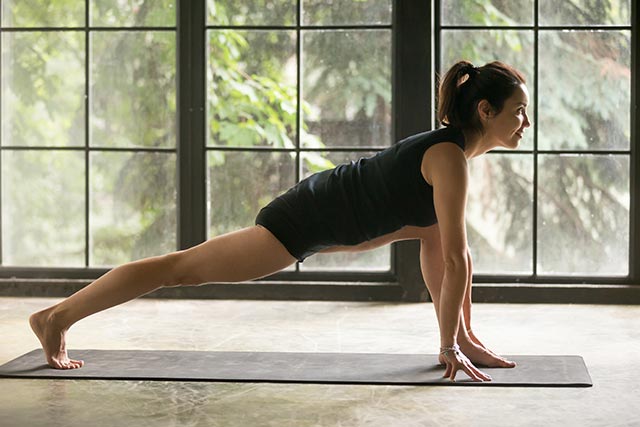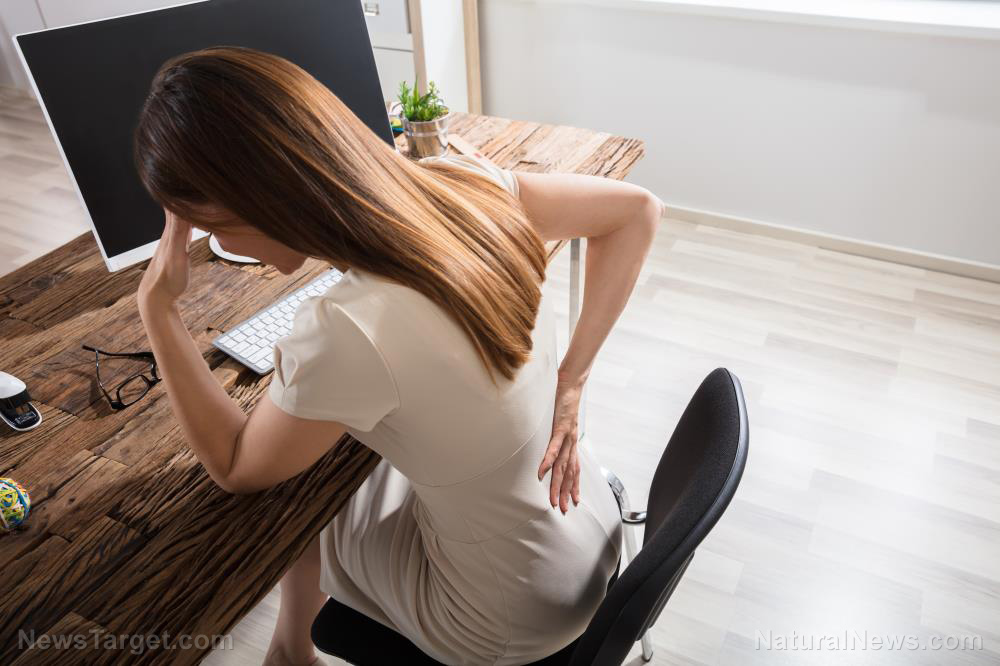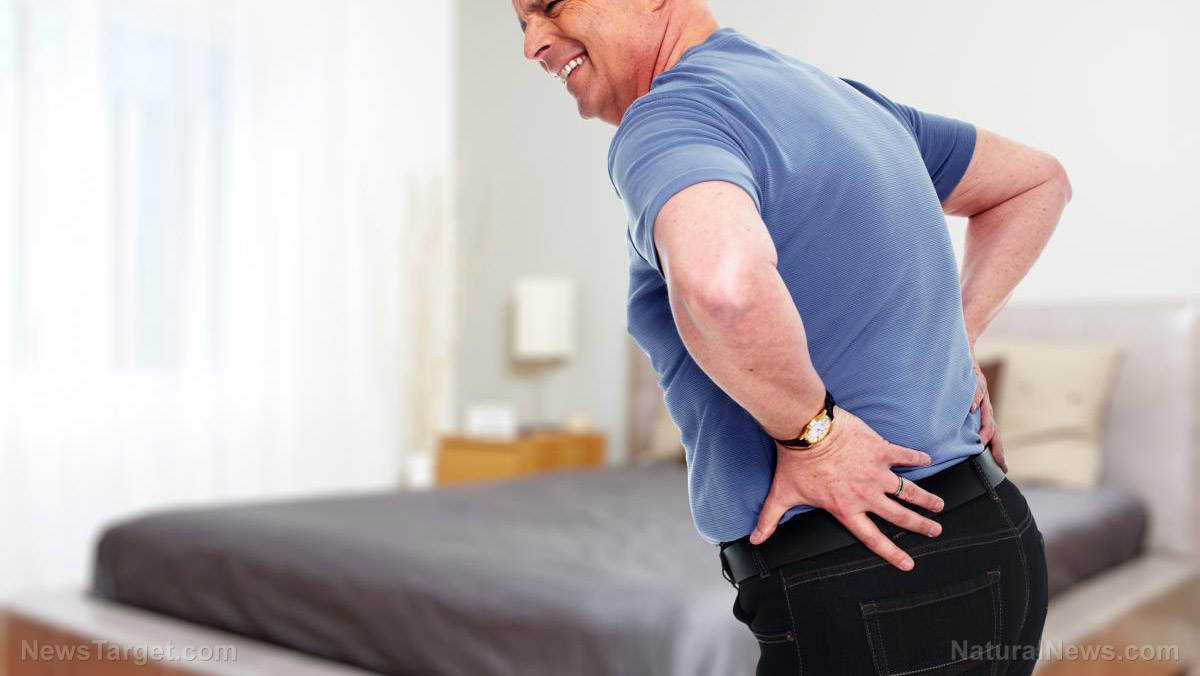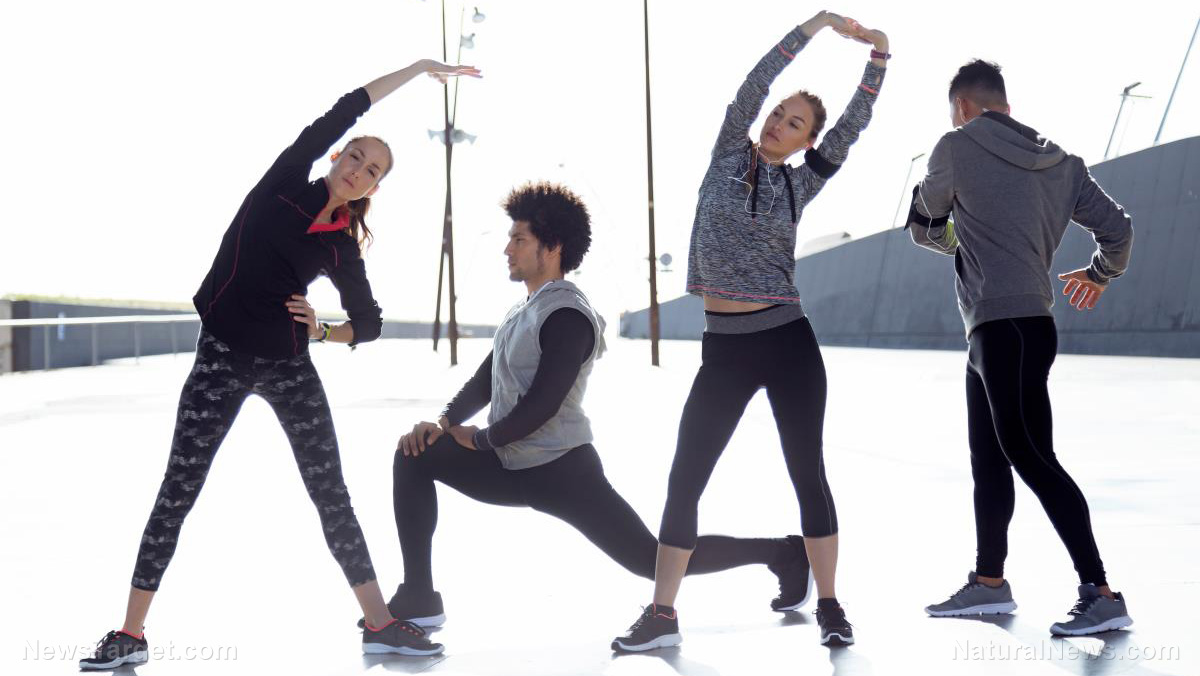10-Minute pain-relieving exercises for tight hip flexors
04/09/2020 / By Zoey Sky

Your hips let you bend, sit, stand and move forward and backward. Since your hips are involved in many basic movements, they often get tight when you repeat certain specific movement patterns.
If you go for long runs without resting or sit at your desk for most of the day, your hip flexors will get tight.
Hip flexors refer to the group of muscles in the front of your hips, thighs and lower abdomen. These muscles let you move your torso and legs.
If you suffer from hip pain constantly, try these 1o-minute exercises to ease your achy hips.
Supine hamstring stretch (1 minute per side)
This stretch targets your hamstrings, but it also helps ease your hips open by stretching the glutes and outer hip muscles, such as the gluteus medius and piriformis.
- Lie down on your back, then loop a towel around the bottom of your right foot.
- Straighten your right leg up towards the sky, then straighten your left leg down the mat.
- Move your hands up the towel as close to your foot as you can, then pull toward you until you feel a stretch through the back of your leg. Hold the pose for a minute, then switch sides.
Supine adductor stretch (1 minute per side)
This stretch opens up the smaller muscles on the inside of your hips and inner thighs.
- Lie down on your back, then loop a towel around the bottom of your right foot. Hold both ends of the towel in your right hand, straighten your left leg down the mat, then straighten your right leg up toward the sky.
- Extend your left arm out to the side.
- Exhale as you open your right leg out to the right, then pull up toward your right shoulder with the towel until you feel a stretch through your inner thigh and groin area. Hold the pose for a minute, then switch sides.
Supine abductor/IT band stretch (1 minute per side)
This stretch helps ease tension from the outer hip muscles like the tensor fascia altar, the gluteus medius and the IT band. It also helps relieve tension on your lower back.
- Lie down on your back and loop a towel around the bottom of your right foot. Hold both ends of the towel in your left hand. Straighten your right leg up toward the sky, but leave your left leg straight down the mat.
- Straighten your right arm out to the side, then exhale as you cross your right leg over your body until it comes into a twist.
- Use your left hand to pull your right foot up toward your left shoulder until you feel a stretch through your outer right hip and thigh. Hold the pose for a minute, then switch sides.
Figure 4 (1 minute per side)
Tightness in your outer hip muscles can cause lower back pain. Try this stretch to relieve tightness in the outer hip.
- Lie down, bend your knees and place your feet flat on the floor.
- Cross your right ankle over your left thigh, then pick your left foot up off the floor. Thread your right arm between your legs.
- Interlace your hands behind your left thigh, then hug the thigh in towards your body until you feel a stretch through your outer hips. Hold the pose for a minute, then switch sides.
Inverted Figure 4 (30 seconds per side)
This stretch is perfect for long days at the office. The stretch is also good for cyclists and runners because it relieves tightness in your hip flexors. (Related: Ease hip pain with these 9 chair stretches.)
- Lie down, bend your knees and place your feet flat on the floor.
- Bring your right foot about one foot over to the right, then lower both knees to the left. Keep your right knee in line with your right hip.
- Cross your left ankle on top of your outer right thigh. Flex both feet to protect your knees.
- Reach your arms above your head, then relax for 30 to 60 seconds. If you feel any pain in your right knee, take your left ankle off of your right thigh and keep your left foot on the ground instead.
Do this 10-minute stretch routine at least once a day to prevent muscle tightness and keep your hips limber and mobile. Practice the routine more if you’re planning to do a lot of repetitive movement on gym day or if your hips are feeling extra stiff.
Sources include:
Tagged Under: exercise, hip flexors, hip stretches, mobility, muscle tension, pain, pain relief, prevention, remedies, stretches, stretching exercises, tight hips
RECENT NEWS & ARTICLES
BackPain.News is a fact-based public education website published by Back Pain News Features, LLC.
All content copyright © 2018 by Back Pain News Features, LLC.
Contact Us with Tips or Corrections
All trademarks, registered trademarks and servicemarks mentioned on this site are the property of their respective owners.



















